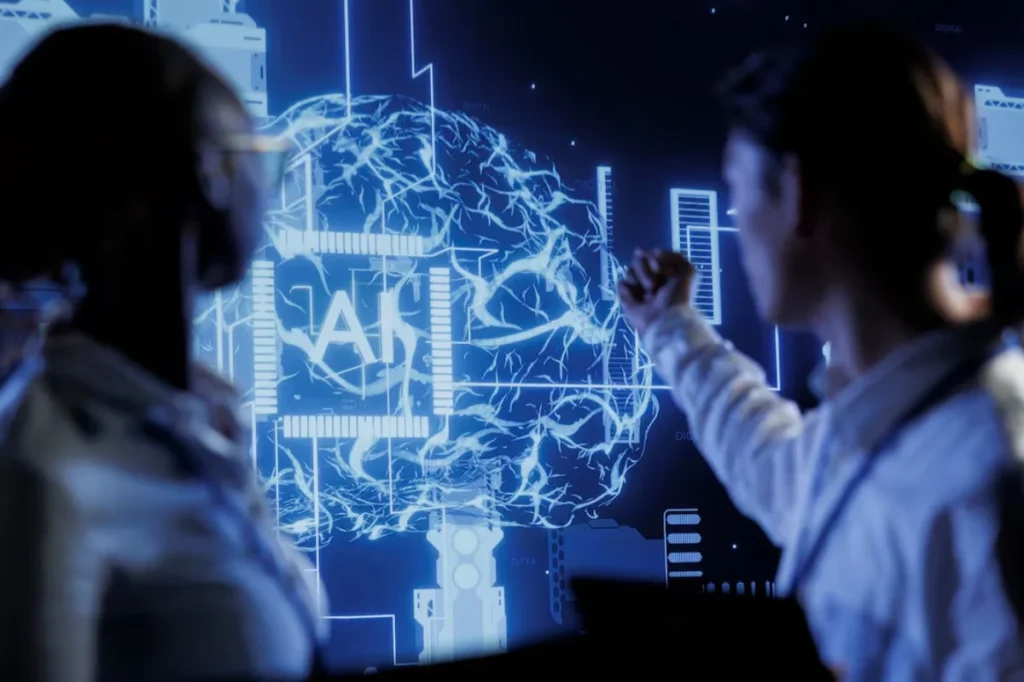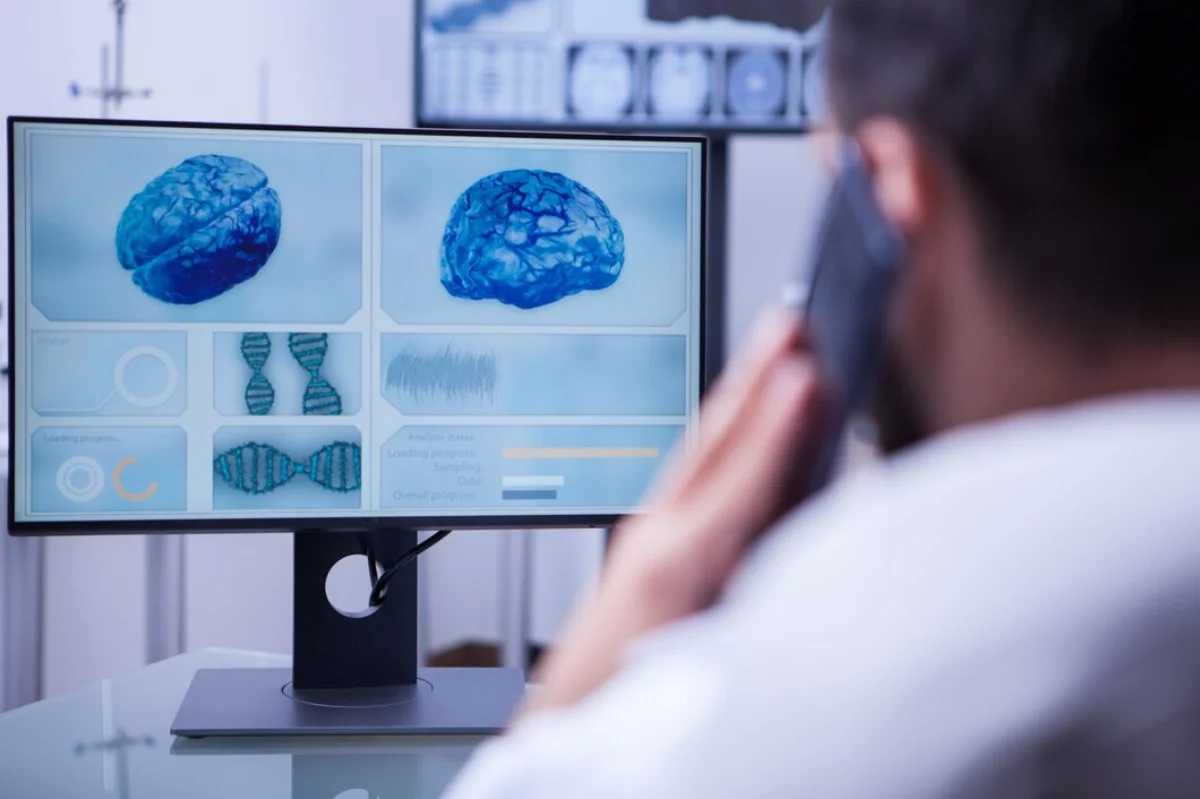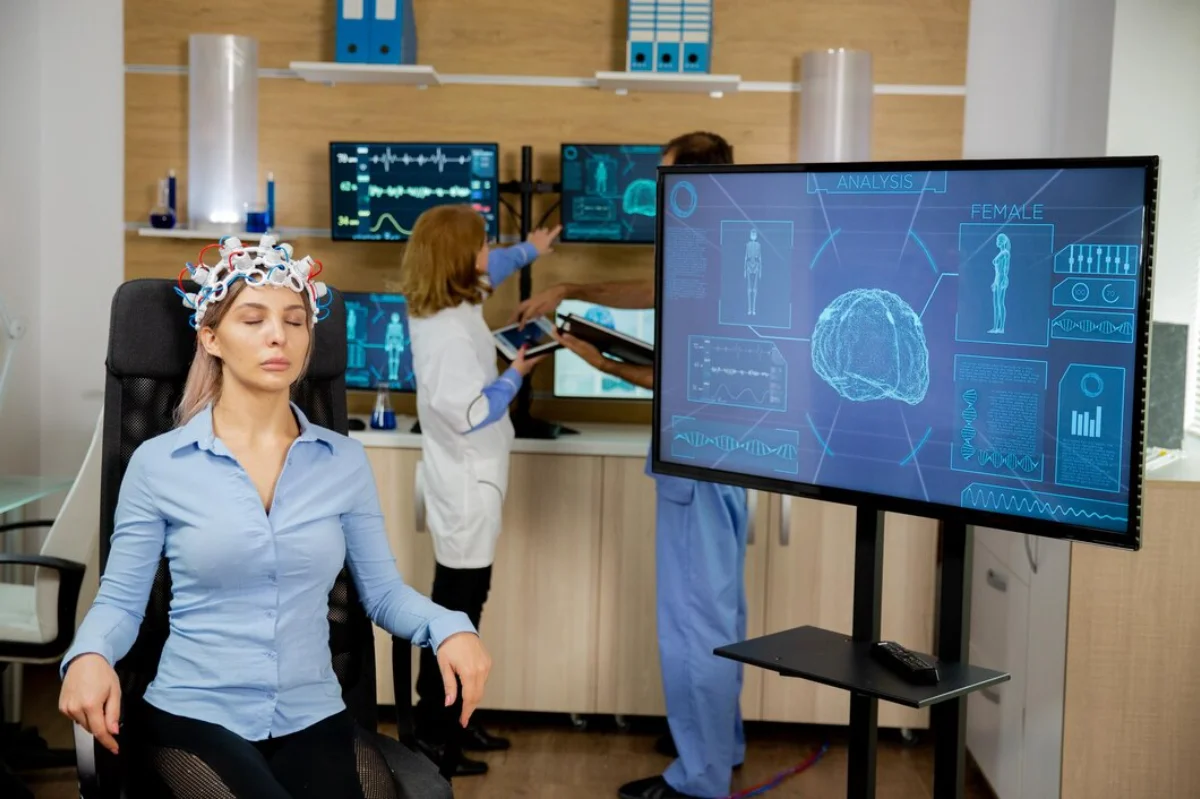The Technology Blog

The Future of AI & Neuroscience
The convergence of AI neuroscience is changing how we understand the human brain. With new developments in brain-computer interfaces (BCIs) and AI cognitive science, researchers are finding ways to connect human and artificial intelligence. The UK is moving forward with its AI strategies. These innovations might change healthcare, communication, and how we think.
AI technology is evolving. Now, it’s being integrated into neuroscience research more than ever. AI can handle large amounts of neural data. It can also enhance brain imaging. Plus, it allows direct communication between the brain and devices. This marks a new era in human-machine interaction. These advancements also raise questions about ethics, policy, and daily life. This article explores the present and future of AI neuroscience, brain-computer interfaces, and AI cognitive science in the UK.

The Intersection of AI and Neuroscience
How AI is Transforming Neuroscience
AI is now essential in modern neuroscience. Machine learning can handle vast neural data, spotting patterns that humans may miss. AI brain mapping helps scientists study neurological disorders like Alzheimer’s, Parkinson’s, and epilepsy. This large-scale data analysis speeds up neurological research.
AI also automates complex analyses, reducing errors and boosting research efficiency. Scientists can now explore brain activity in detail, enhancing our grasp of neuroplasticity. This is crucial for treating brain injuries and improving cognitive therapies.
AI-Powered Brain Imaging
AI’s role in brain imaging is exciting. AI now boosts the accuracy and speed of techniques like functional MRI (fMRI) and electroencephalography (EEG). These tools are vital for diagnosing conditions like multiple sclerosis, schizophrenia, and traumatic brain injuries. AI can spot small changes in brain activity that humans might overlook. This helps doctors make earlier diagnoses.
AI-enhanced imaging is also key in researching consciousness, perception, and memory. Scientists use AI to decode signals from the brain. They can even recreate images based on brain activity. AI might soon help researchers see thoughts or memories as they happen. This could give us better insights into how humans think.

Brain-Computer Interfaces: The Future of Human-Machine Interaction
What Are Brain-Computer Interfaces (BCIs)?
Brain-computer interfaces (BCIs) enable direct communication between the brain and external devices. They can help paralysed people move again with neural implants. They also let users control devices using just their thoughts. BCIs bridge human cognition and digital technology, enhancing abilities and restoring lost functions.
Breakthroughs in BCIs
In the UK, research institutions are advancing brain-computer interface technology. Teams at Imperial College London and the University of Oxford are working on non-invasive BCIs. These devices could change how we interact with technology. BCIs will change how we communicate online. They will help control smart homes and improve virtual reality.
Non-invasive BCIs use EEG or near-infrared spectroscopy to read brain signals without surgery. These devices let users control computers, prosthetics, and robots using only their thoughts. This technology offers new mobility and communication options for people with disabilities.
More invasive BCIs, like neural implants, are also being explored for medical use. Neuralink and similar companies are developing implants. These implants aim to restore sight or movement for people with spinal cord injuries. While still experimental, these technologies represent the future of neurotechnology.
Ethical Considerations and Challenges
Despite their promise, brain-computer interface technologies raise ethical concerns. Issues of data privacy, security, and mind manipulation need attention. Who owns data from BCIs? Could this tech be used for surveillance or control? Policymakers and researchers should work together. They need to create ethical guidelines. This way, BCIs can help society while respecting personal freedom.
There are also concerns about access to these technologies. If only a few people can use cognitive-enhancing BCIs, it could create inequality. Addressing these issues is crucial as BCIs become part of daily life.

AI Cognitive Science: Understanding Human Intelligence
The Role of AI in Cognitive Science
AI is vital in advancing AI cognitive science, which seeks to understand human thought through AI models. Studying how AI learns and decides helps researchers understand human thinking better.
AI simulations of cognitive processes help us grasp perception, decision-making, and problem-solving. These models serve academic research and improve AI systems. As AI learns about how people think, it can better help in education, mental health, and robotics.
AI and Mental Health
In the UK, AI models are used to spot early signs of mental health issues. Machine learning analyses speech, facial expressions, and behaviour to predict depression and anxiety. This leads to AI-driven mental health tools offering personalised support.
Chatbots and virtual therapists assist those without access to traditional therapy. These AI tools spot distress signals and respond well. They help close gaps in mental health services.
Enhancing Human Intelligence with AI
As AI evolves, interest in enhancing human intelligence grows. Neural implants and AI tools could boost memory, learning, and problem-solving skills. While still early, this technology could revolutionise education and professional growth.
In the future, AI tutors may offer personalised learning experiences tailored to each student’s unique needs. AI-assisted brain training could help individuals improve cognitive abilities, enhancing productivity and creativity.
The Future of AI Neuroscience in the UK
Investment in AI and Neuroscience
The UK government is putting money into AI research. They see how it can change healthcare and technology. Initiatives like the AI Sector Deal and partnerships with top universities are driving innovation in AI neuroscience and brain-computer interfaces.
The Role of British Universities and Research Institutions
Top UK institutions like Cambridge, Oxford, and King’s College London lead innovative research in AI cognitive science. AI experts and neuroscientists work together to speed up discoveries. These findings may change how we understand human intelligence.
Challenges and Future Prospects
While AI neuroscience advancements are promising, challenges like ethical issues, data privacy, and accessibility must be tackled. Using AI technologies responsibly is essential for their successful integration into society.









